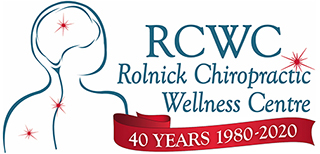Enhance Your Health
Health Tip of the Week: Religion and Health
Religion has always been the backbone of society. And since I am a doctor whose primary purpose is caring for backbones, it is long overdue for a discussion on religion and health. Worldwide, religion is what gives us the framework and understanding to our actions, morals and beliefs. A strong belief in God can definitely be associated with good health.
According to recent reporting by the Mayo Clinic, “Most studies have shown that religious involvement and spirituality are associated with better health outcomes, including greater longevity, coping skills, and health-related quality of life (even during terminal illness) and less anxiety, depression, and suicide. Several studies have shown that addressing the spiritual needs of the patient may enhance recovery from illness.”
Over the last century, medical practice has distanced itself from religion. In the early days of society, churches and religious groups were responsible for the first hospitals and in most cases, clergy were the doctors and nurses caring for the patients.
In the first half of the 1900’s, chiropractic care was extremely spiritual. Chiropractors would discuss that through God, the power that made the body healed the body and that health came from above down and inside out. It was even talked about that the spinal adjustment helped the spirit of God flow through the body, so that God could heal the body without interference.
Gradually, chiropractors replaced using God’s name with the term innate or universal intelligence. Now, in chiropractic, God is rarely mentioned and explanations are more firmly placed in science such as neurology and neural impulse flow.
The good news is that science is taking a look at the effects of religious beliefs on health and are finding that people who practice religion and have strong religious beliefs are trending healthier than the non-religious.
A recent article published in Forbes, by Nicole Fisher, discussed Religion is Good for Your Health. Religion has a major effect on mental health. Religious faith gives people connectedness, optimism, hope, trust and purpose. All important components that are shown to improve mental health.
Practicing the qualities of faith lead to decreased stress and increased resiliency. Many religions stress caring for the physical body and partaking in activities like excessive drinking of alcohol or smoking are frowned upon and discouraged.
On an interesting side note, a recent study surveying Americans founds 90% of the people surveyed believed in a higher power, compared to 64% of physicians who were uncertain about their beliefs. This could be an explanation for the previous lack of research on the religious effects on health and healing.
Contrary to today’s medical practices, patient’s want more spirituality from their doctors. One study found that 77% of patients thought physicians should consider patients' spiritual needs. More specifically, 48% welcomed or desired that their physicians pray with them, and another 37% wanted physicians to discuss religious beliefs with them.
The study also discovered that almost 70% of patients claimed their physician had never broached the topic of religion with them. And finally, what better way to end this week’s health tip than with passages from the Holy Bible related to health.
A cheerful heart is good medicine, but a crushed spirit dries up the bones ~ Proverbs 17:22
Do you not know that your bodies are temples of the Holy Spirit, who is in you, whom you have received from God? You are not your own; you were bought at a price. Therefore honor God with your bodies ~ 1 Corinthians 6:19-20

